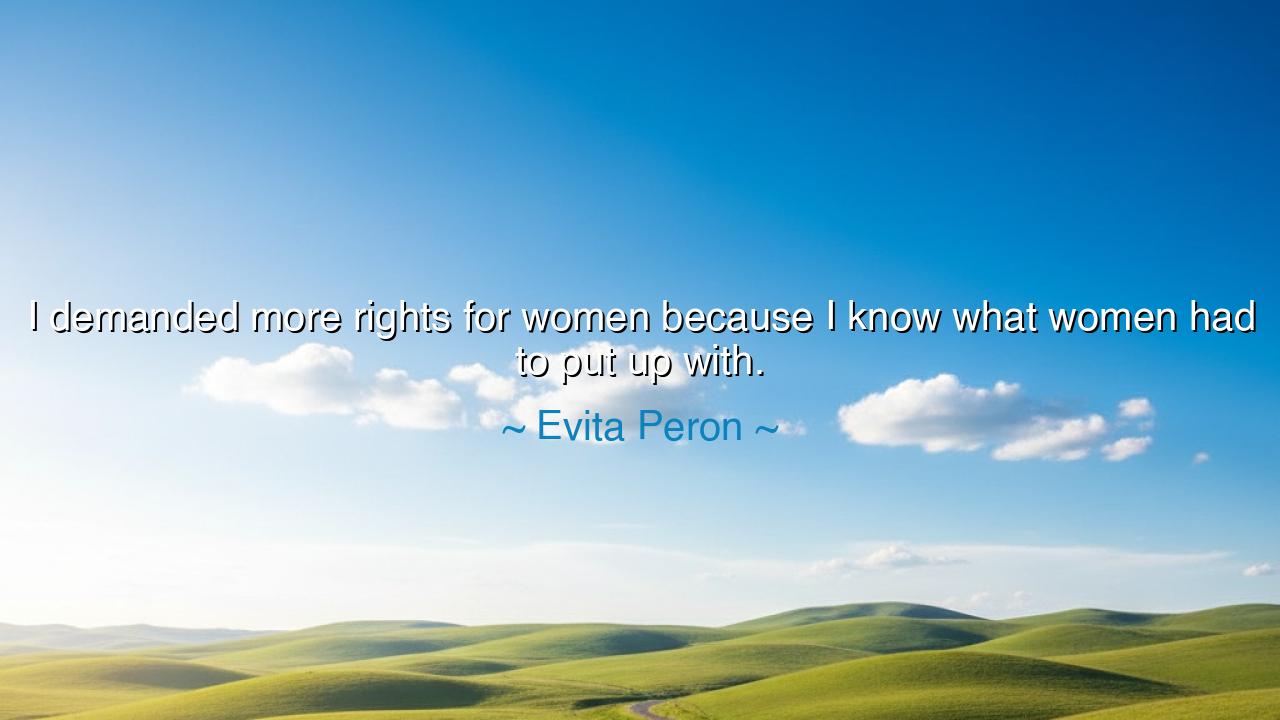
I demanded more rights for women because I know what women had






When Eva Perón declared, “I demanded more rights for women because I know what women had to put up with,” she spoke as one who had lived the pain she sought to heal. Her words were not abstract philosophy, but the cry of experience, a voice rising from hardship and compassion. She recognized that half of humanity had been silenced, burdened, and denied for too long, and she made her life a torch to illumine their struggle.
The ancients would have called such a cry both prophetic and heroic. To demand rights is not merely to seek favor, but to call for justice where imbalance has long reigned. Evita’s voice became the voice of multitudes, carrying the hidden suffering of mothers, laborers, and daughters who bore the weight of a society that overlooked them. In naming what women “had to put up with,” she turned silent endurance into public truth, transforming private pain into collective strength.
Her own life was testimony. Born into poverty, marked by exclusion, she rose not only to power as Argentina’s First Lady but to become the champion of the voiceless. She labored to secure suffrage for women, which was finally achieved in 1947, and established foundations to aid the poor. Her words reflect this journey: she did not speak from ivory towers, but from the dust of struggle, knowing firsthand the bitterness of inequality.
History remembers many such figures. Consider Emmeline Pankhurst in England, who marched and fought, enduring imprisonment to win the vote for her sisters. Like Evita, she too demanded rights, because she knew the indignities women endured. Both stand as proof that transformation does not come from those who ignore suffering, but from those who have felt its weight and refuse to let it continue.
Thus, Evita’s words are not bound to one time or place; they are a call to every generation. To know injustice is to bear a duty: to lift one’s voice for those who cannot. To demand rights for women is not rebellion, but restoration—the rebalancing of society so that all may walk in dignity. Let her teaching endure: that the memory of hardship becomes strength, and the strength becomes justice, until the world itself is remade.






AAdministratorAdministrator
Welcome, honored guests. Please leave a comment, we will respond soon